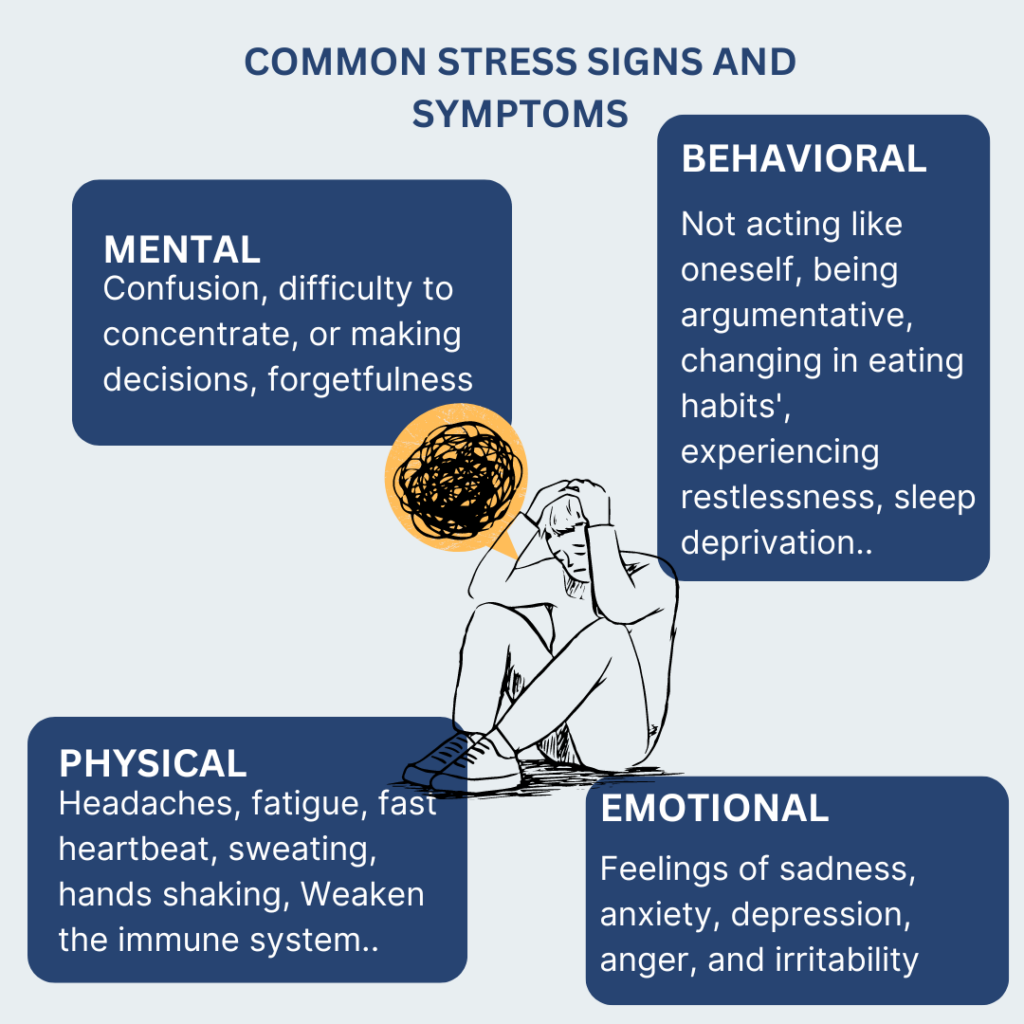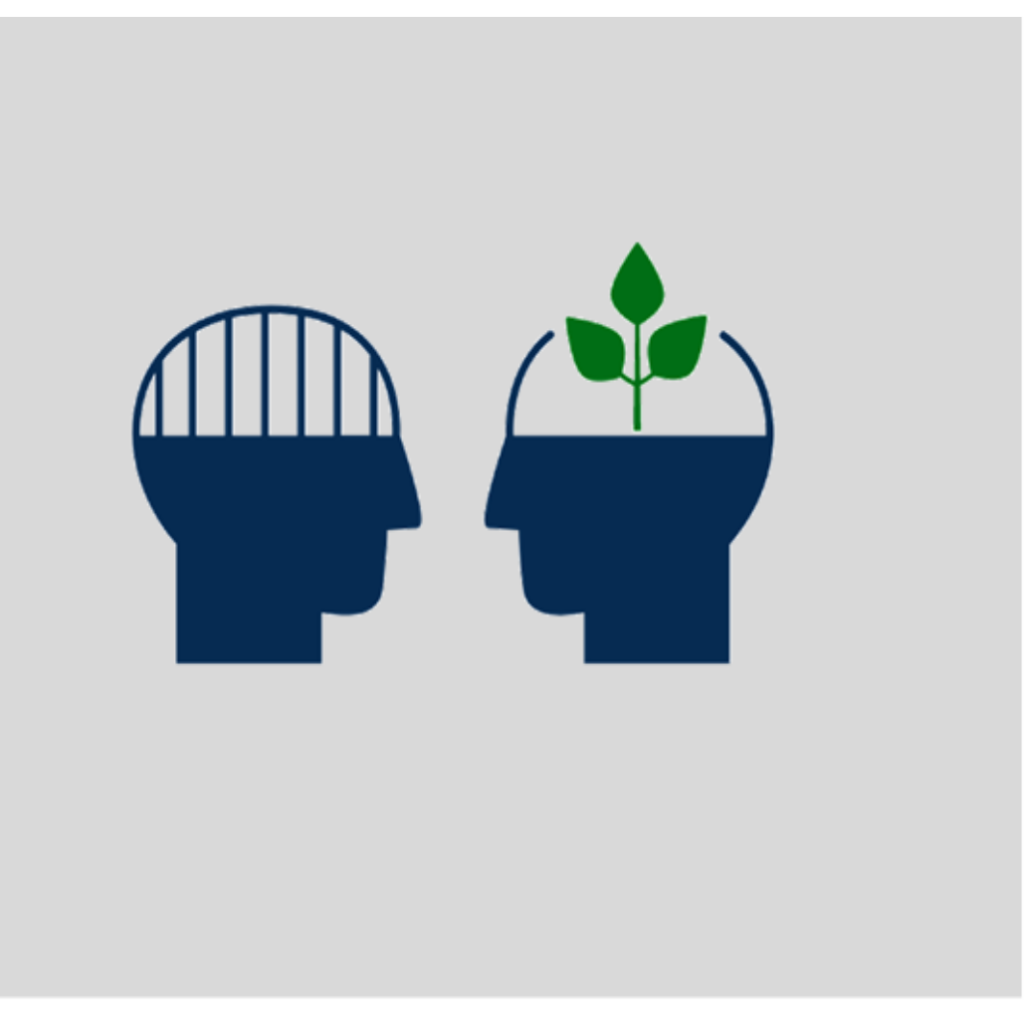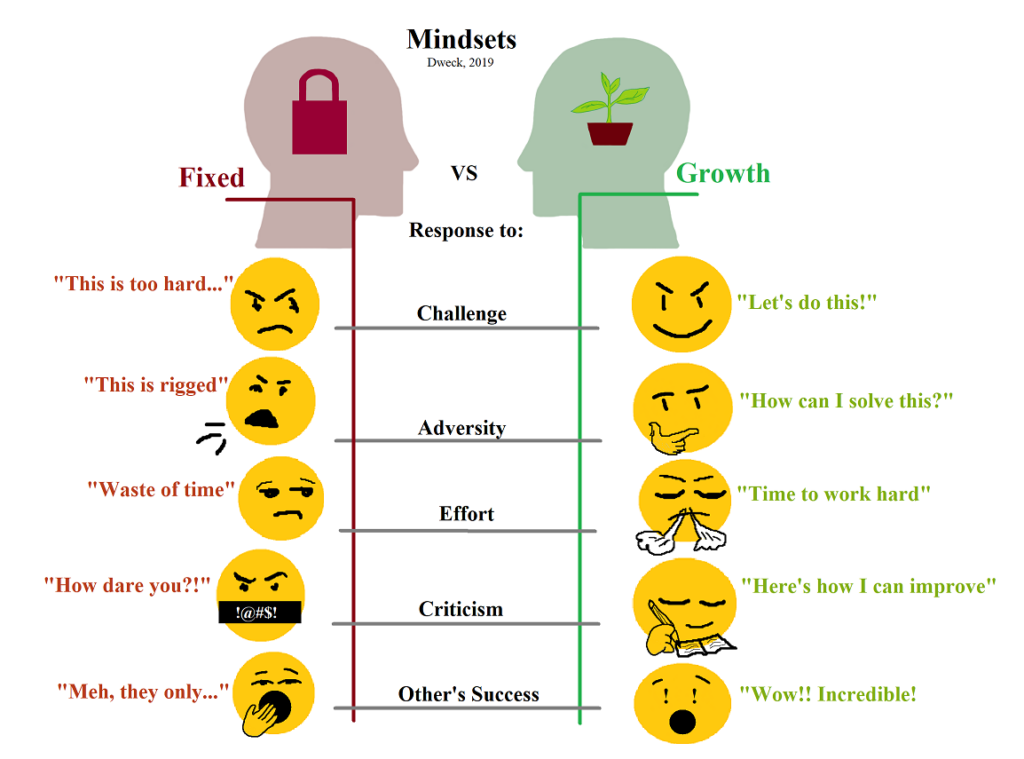
In the past few decades, several definitions of stress have been developed by researchers, such as:
“Stress arises when individuals perceive that they cannot adequately cope with the demands being made on them or with threats to their well-being. “(Lazarus,1966).
“Stress, it is argued, can only be sensibly defined as a perceptual phenomenon arising from a comparison between the demand on the person and their ability to cope. An imbalance in this mechanism, when coping is important, gives rise to the experience of stress and the stress response“ (T. Cox, 1978).
“A simple definition is that stress occurs when pressure exceeds one’s perceived ability to cope“ (Palmer, 1999).
“Stress is a state of worry or mental tension caused by a difficult situation. Stress is a natural human response that prompts us to address challenges and threats. Everyone experiences stress to some degree. However, how we respond to stress makes a big difference to our overall well-being. “ World Health Organization 2023.
Okay! That was a lot. Imagine yourself in a situation with a lot going on, like getting ready for a music recital or managing a packed schedule. It is a lot to handle, isn’t it?
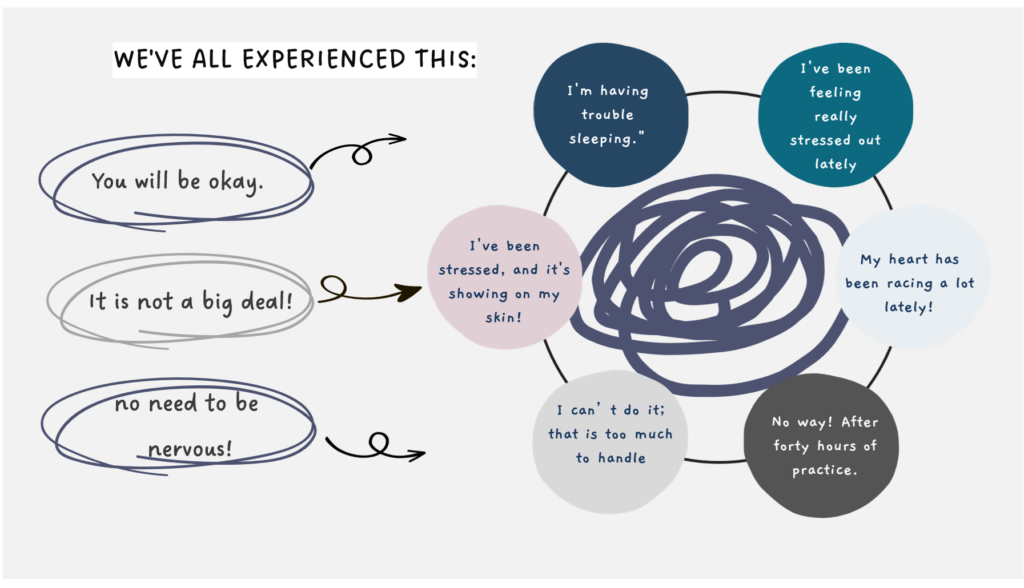
Decoding Stress:
Understanding Stress Response
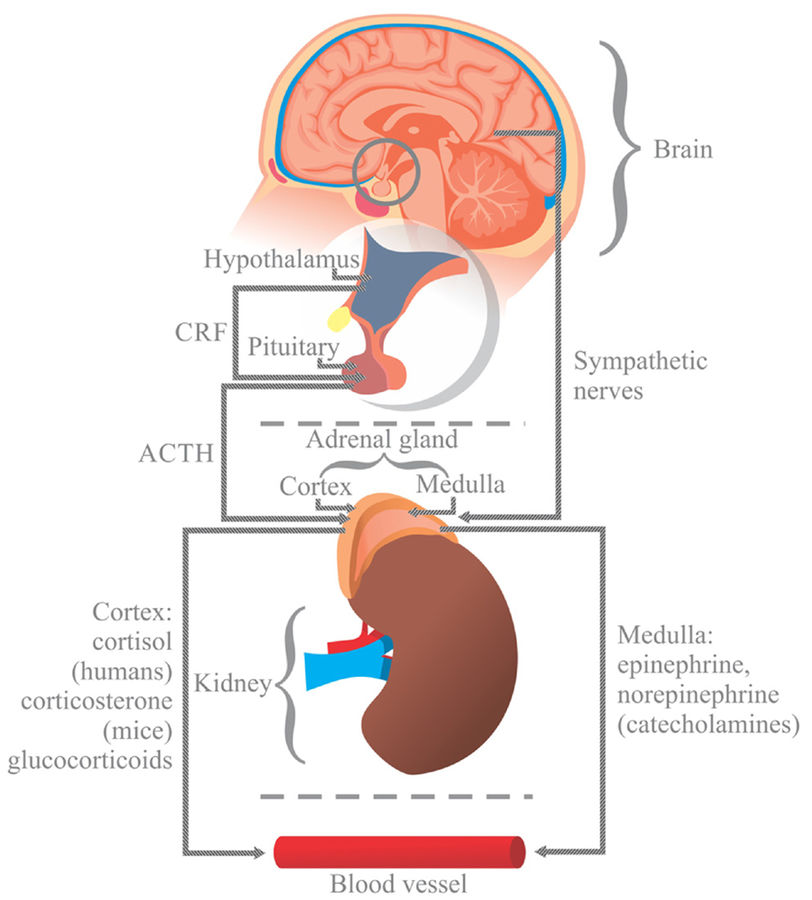
Have you ever wondered what happens inside your body when tension kicks in? Why did you struggle to concentrate the night before your performance? Your hands were sweating, and your heartbeat felt like you were in a race (Irie et al.; M., 2023).
Understanding the anatomy and physiology of stress goes beyond information; it is about empowerment. The key is providing musicians with the resources to develop resilience. Being a musician frequently involves experiencing stress and anxiety, particularly when performing. However, musicians can manage stress by starting with the fundamental step of understanding how their bodies react to these feelings. They can effectively care for themselves.
Recognizing The Key Signs and Symptoms
The stress response mechanism in the body is defined as the body’s reaction to pressure. Stress triggers responses in systems, including the nervous system, that activate fight or flight responses by increasing heart rate, blood pressure, and breathing while decreasing digestion. The cerebral cortex is heightened for attention, while the limbic system generates feelings like anxiety and fear. Hormones like cortisol from glands regulate blood sugar levels. The body’s stress response follows General Adaptation Syndrome, progressing through alarm, resistance, and exhaustion stages (Selye, 1950). Prolonged stress can influence organ systems, significantly affecting performance. By studying how stress works biologically, musicians can gain a sense of control and develop strategies to handle performance pressures effectively. This understanding can empower you to take charge of your stress and build resilience (Selye,1956).
Harmonizing Stress: Tips for Coping Strategies
Musicians frequently face various challenges in the realm of music, where creativity intersects with performance demands. Whether it is practice sessions or nerve-wracking performances that can impact their mental and physical health, developing coping mechanisms is crucial for handling stress and maintaining equilibrium in this demanding field. By grasping and applying these strategies, musicians can effectively manage the rigors of their careers while prioritizing their wellness.
Mental Health:
- Identifying the sources of stress is a fundamental key, as recognizing stress initiates effective stress management.
- Cognitive Behavioral Therapies (CBT) have been proven to offer health advantages, such as reducing stress, boosting mood, and enhancing abilities (Beck, 1997).
- Prioritizing self-care, which encompasses dedicated “me time” and self-nurturing practices, is essential for effectively managing stress levels.
- Mental health counseling provides a supportive environment to discuss feelings and concerns with a trusted individual, reducing isolation and stress.
- Social support from family and friends who provide emotional or practical assistance can significantly help individuals manage stress.
- Finally, the growth mindset serves as a fundamental pillar in stress management and individual personal growth, a topic we will explore in the upcoming chapter of our blog.
Physical Health:
- Engaging in physical activities or workouts can help decrease the generation of stress hormones, like cortisol, while triggering the release of endorphins, which serve as a natural mood booster. Incorporating exercises into your schedule can notably lower stress levels and enhance your overall well-being and mental health (McArdle et al.; V. L., 2019).
- Good sleep: When you get a good night’s rest, your body naturally reduces cortisol levels and other stress hormones (Walker, 2017).
- A balanced diet supports a healthy immune system and provides the necessary energy to manage stress. Consider meal planning to save time, ensure balanced meals, and prevent weight gain (Whitney et al., A. 2017)
- Mindful eating involves slow, thoughtful food choices and deep breaths to counteract stress-induced eating habits. By focusing on the meal and chewing slowly, we can enjoy food more and improve digestion. This practice also helps us recognize emotional eating cues, preventing overeating as a coping mechanism.
Relaxation Techniques, such as yoga, meditation, and deep breathing exercises, can lower stress levels and positively affect mental health.
Avoiding Unhealthy Coping Mechanisms: Many turn to inefficient stress management methods like smoking, alcohol drinking, drug usage, emotional eating, and social withdrawal. Though they may offer temporary relief, these habits lead to long-term harm and damage.
Navigation Stress with a Growth Mindset: Embracing The Positive and Transforming the Negative
“We can use two primary mindsets to navigate life: growth and fixed. What are the consequences of thinking that your intelligence or personality is something you can develop, as opposed to a fixed, deep-seated trait? “- Dweck, Mindset: The new psychology of success.
GROWTH MINDSET VS. FIXED MINDSET
A growth mindset refers to our core belief that our talents can be developed through practice, which may influence our thoughts and behaviors.
A fixed mindset is a way of thinking about one’s own intelligence and abilities. Specifically, it describes viewing these as innate and unchangeable.
TACKLE STRESS WITH A GROWTH MINDSET
Stress is a constant companion as musicians, but our mindset can profoundly influence our experience. Just as in life, stress in the music realm can either be a catalyst for growth or a barrier to success, depending on our mindset. Consider, for example, the imminent deadline for a performance or project; while it may overwhelm some and drain their energy, others might view it as a chance for development and accomplishment, embracing its challenges.
It is fascinating how different mindsets can shape our responses to stress. Musicians with a growth mindset see obstacles as opportunities for learning and growth. They thrive under pressure and view setbacks as temporary and surmountable. Conversely, others with a fixed mindset may feel defeated by stress and view challenges as insurmountable hurdles that negatively reflect their abilities.
Our mindset determines whether stress becomes a stepping stone or a stumbling block in our musical journey. By cultivating a growth mindset, we can harness the power of stress to propel us forward, embracing challenges as opportunities for growth and transformation.
SHIFTING YOUR STRESS MINDSET
Probably very few people view all situations with the “stress is harmful” approach. At the same time, many people could benefit from improving their stress mindset.
Research shows that stress is most likely harmful if one feels inadequate, out of control, meaningless, or isolated (McGonigal, 2015). I have framed these categories as the “three H’s” of stress risk: helplessness, hopelessness, and hiding.
When you are overwhelmed with life stress, do you feel helpless, like there is nothing you can do?
Do you feel hopeless—a sense that life will always be difficult?
Do you want to avoid or hide from stressors by escaping into food, alcohol, work procrastination, neglecting daily chores, isolating yourself from friends, or bottling up feelings?
As a new and empowering strategy, why not tap into the most energizing core qualities already within you? Your character strengths can be a powerful tool in managing and coping with stress.
HOW CAN ONE CULTIVATE A MINDSET TO EMBRACE STRESS BY STANFORD PSYCHOLOGIST KELLY MCGONIGAL?
Stanford psychologist Kelly McGonigal discusses new research indicating that stress can make us stronger, smarter, and happier – if we learn how to open our minds to it.
In her discussion on stress, Stanford psychologist Kelly McGonigal eloquently articulates:
“There is a reason stress has a bad reputation, and part of it is the evidence that chronic and traumatic stress can increase the risk of illness, depression, and early mortality, among other things.
Seeing the upside of stress is not about denying that stress can be harmful. It is about balancing your mindset so that you feel less overwhelmed and hopeless about your stressful life. We rarely get to choose the stress in our lives, and it is unrealistic to think we can avoid it. Given that life is going to be stressful, what do you gain by focusing on the fear that the reality of your life is killing you? Psychologists have found that embracing stress requires a high tolerance for ambiguity and uncertainty. You have to understand that two seemingly opposite things can be true simultaneously. Going through something stressful can make you sick or depressed, and it can also be true that the same stressful experience can ultimately make you stronger, more compassionate, and more resilient over time.”
The key is not to deny stress but to recognize and acknowledge it, knowing that changing your mindset does not mean adopting an overly optimistic view of the world. A simple method to change our perspective and capitalize on stress is to see it as an opportunity for learning and growth. Interestingly, our capacity to derive lessons from experiences is closely tied to how our bodies react to stress at a certain level. Following exposure to a stressor, the brain undergoes a rewiring phase that enhances its ability to retain information and draw insights from the situation. This neurological adaptation assists us in managing challenges—a phenomenon referred to as stress resilience in psychology circles (Kalat, 2016). Essentially enduring, stress functions as a vaccine fortifying the mind and body.
Beat-Blockers Enforce A Fixed Mindset in Stress Management
WHAT ARE BETA-BLOCKERS?
Beta-blockers are medications designed to mitigate cardiac issues like heart attacks by blocking the action of hormones like adrenaline. But why would a performer resort to cardiac medication? When we are nervous, our body’s fight-or-flight response can flood us with adrenaline, leading to symptoms like trembling, cold hands, sweating, and tense muscles. By blocking adrenaline, these pills afford performers greater physical control over their performance. Based on my exploration of information about Beta Blockers, I have outlined some pros and cons below.
PROS:
a. Provides physical control by blocking adrenaline and reducing shaking during performances.
b. Convenient to use, reaching peak effect after 1.5 hours, offering an easy solution for nervousness.
c. Affordable option, with prices varying based on insurance coverage or pharmacy, generally accessible.
d. Accepted within performance culture, minimizing potential stigma or criticism for usage.
CONS:
a. Blocks adrenaline, necessary for optimal performance, potentially hindering peak performance levels.
b. Creates dependency on pills for performance, diverting reliance from self-efficacy and self-esteem.
d. Fails to address negative thought patterns, leaving underlying anxiety untreated.
e. May diminish emotional response to music, detracting from the performer’s and audience’s enjoyment.
f. Limits addressing core causes of performance anxiety, focusing solely on physical symptoms rather than holistic solutions.
ARE BETA-BLOCKERS SUITABLE FOR MUSICIANS?
I expect that we would agree that Beta-Blockers drugs should not be used by music students who are just starting to learn how to perform; they have to go through the whole experience with whatever it carries to be able to grow as musicians and build up performance skills and resilience.
Musicians should not view beta-blockers as cure-alls for performance anxiety. After all, these medications only relieve the direct, physical symptoms of stage fright; they have no impact on the underlying, often subtle reasons for experiencing anxiety.
Beta-blockers may give performing musicians temporary comfort, but comfort should not be the goal. The goal is to build performance skills, confidence, and musical expressions and maintain musician self-authenticity. Performance skills must be built within the musician’s learning journey. During this journey, musical educational institutions must foster and enforce training programs to manage stress and performance anxiety.
Beta-blockers may get you through the first round or even past the finals, but they will not help you solve the problem’s underlying cause.
CONCLUSION
I believe that managing stress requires a holistic approach to address it effectively. Prioritizing well-being is essential, focusing on enforcing physical, emotional, and psychological strategies into my daily routine. However, there is no one-size-fits- for all. As musicians, we aim to build performance skills, confidence, and musical expressions, maintain self-authenticity, and enjoy the musical experience. Taking shortcuts to manage stress by using drugs for temporary relief or ignoring the problem to keep moving was never the solution.
I strongly believe in the power of a growth mindset, emphasizing adaptation, resilience, and continuous learning in the face of challenges. It will transform your learning or performing journey into an ongoing process of self-discovery and growth guided by resilience, self-awareness, and authenticity.
I recognize educational institutions’ crucial role in shaping aspiring musicians’ well-being and performance skills and integrating stress management techniques, mental health education, and performance training into their curriculum. I believe in creating supportive learning environments that foster resilience, self-care, and artistic expression.
REFERENCES:
Burin, A. B., & Osório, F. L. (2017). Music performance anxiety: A critical review of etiological aspects, perceived causes, coping strategies, and treatment, Arc. Clin. Psychiatr. 44 (5). DOI https://doi.org/10.1590/0101-60830000000136
Portí, E., Parrado, E., Cladellas, R., & Chamarro, A. (2021). Health outcomes of occupational stress in passionate musicians. Ansiedad y Estrés. 27 47-56. DOI https://doi.org/10.5093/anyes2021a7
Selye, H. (1950). Stress and the general adaptation syndrome. British Medical Journal, 1(4667), 1383–1392.
Selye, H. (1956). The stress of life. McGraw-Hill.
Beck, J. S. (1997). Cognitive therapy: Basics and beyond. The Journal of Psychotherapy Practice and Research, 6(1), 71–80.
McArdle, W. D., Katch, F. I., & Katch, V. L. (2023). Exercise physiology: Nutrition, energy, and human performance). Wolters Kluwer.
Walker, M. P. (2017). Why we sleep: Unlocking the power of sleep and dreams. Scribner, an imprint of Simon & Schuster, Inc
Whitney, E. N., Rolfes, R. S., Crowe, T., & Walsh, A. (2017). Understanding nutrition. Cengage Learning.
Gómez-López, B.;Sánchez-Cabrero, R. (2023). Current trends in music performance anxiety intervention. Behav. Sci. 13(9), 720. DOI https://doi.org/10.3390/bs13090720
Irie, N., Morijiri, Y., & Yoshie, M. (2023). Symptoms of and Coping Strategies for Music Performance Anxiety Through Different Time Periods. Frontiers. 14. DOI https://doi.org/10.3389/fpsyg.2023.1138922
Kalat, J. W. (2016). Biological psychology. Cengage Learning.
Austin, (2018). Stress and anxiety interventions for classical musicians. Theses and Dissertations. DOI https://scholarsarchive.byu.edu/etd/7309
Tao W, Zhao D, Yue H, Horton I, Tian X, Xu Z, and Sun H-J (2022). The influence of growth mindset on the mental health and life events of college students. Front. Psychol. 13:821206. DOI: 10.3389/fpsyg.2022.821206
University, S. (2016). Embracing stress is more important than reducing stress. Stanford News. DOI https://news.stanford.edu/2015/05/07/stress-embrace-mcgonigal-050715
HYPERLINKS TO ORIGINAL ARTICLES AND RESOURCES
Definitions of stress. Stress Management. (n.d.). https://www.managingstress.com/definitions-of-stress
Huberman, A. (2024, February 22). The impact of mindset on stress and performance | Dr. Andrew Huberman. YouTube. https://www.youtube.com/watch?v=SedgGUlhSl0
Mayo Foundation for Medical Education and Research. (2023, August 1). Chronic stress puts your health at risk. Mayo Clinic. https://www.mayoclinic.org/healthy-lifestyle/stress-management/in-depth/stress/art-20046037
Mayo Foundation for Medical Education and Research. (2023b, November 21). How to stop negative self-talk. Mayo Clinic. https://www.mayoclinic.org/healthy-lifestyle/stress-management/in-depth/positive-thinking/art-20043950
U.S. National Library of Medicine. (n.d.). Learn to manage stress: MedlinePlus Medical Encyclopedia. MedlinePlus. https://medlineplus.gov/ency/article/001942.htm
Rothman, L. (2016, March 10). Stress history: Meet the doctor who invented being stressed. Time. https://time.com/4243311/hans-selye-stress/
McGonigal, K. (2013b, September). How to make stress your friend. Kelly McGonigal: How to make stress your friend | TED Talk. https://www.ted.com/talks/kelly_mcgonigal_how_to_make_stress_your_friend
Patston, T., & Loughla, T. (2014). [PDF] playing with performance: The use and abuse of beta-blockers in the performing arts. | semantic scholar. https://www.semanticscholar.org/paper/Playing-with-Performance:-The-Use-and-Abuse-of-in-Patston-Loughlan/181a1dfe0445e8a2fa57901d8270cf9cc4dd782f
CREDITS FOR MEDIA:
“Response to stress” by Campos-Rodríguez R, Godínez-Victoria M, Abarca-Rojano E, Pacheco-Yépez J, Reyna-Garfias H, Barbosa-Cabrera RE, Drago-Serrano ME is licensed under CC BY 3.0.
“Fixed and growth mindsets” by ㅰ151 is licensed under CC BY-SA 4.0.
Videos: Pathophysiology: Stress Response, by Dr. DrBruce Forciea, https://youtu.be/uw1qnYzh0nQ?feature=shared
Stress Mindsets Matter– Learner LAB, Trevor Ragan, https://thelearnerlab.com/new-era-of-growth-mindset/
Beta Blockers by MedWatch Today with Dr. Kevin Boran, interventional cardiologist, https://www.youtube.com/watch?v=TXvKcDWFZMM

